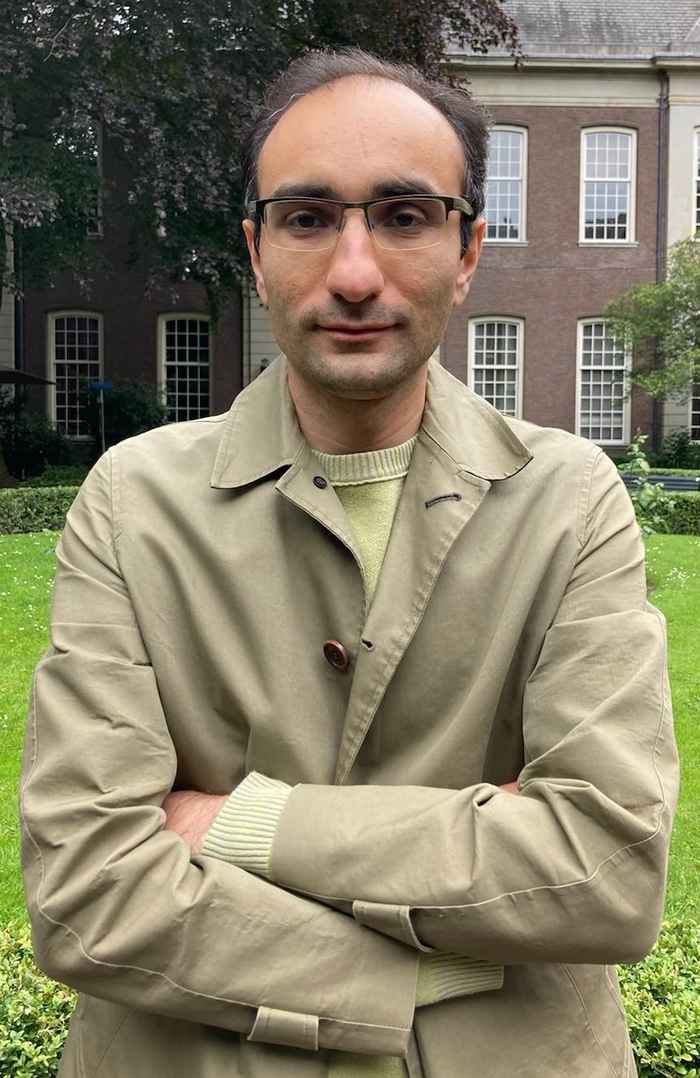Shahin Nasiri (ASCA) Winner Praemium Erasmianum Dissertation Prize 2024
22 May 2024

Rethinking Freedom from the Perspective of Refugees: Lived Experiences of (Un)freedom in Europe’s Border Zones, the dissertation defended by Shahin Nasiri at the UvA on September 13, 2023, is a pioneering contribution to contemporary refugee and migration studies. But maybe even more impressively, it also sheds new light on a centuries-old philosophical debate on the nature of freedom. This a very crowded field, but Nasiri manages not only to formulate a convincing, distinctly new conception of freedom, one that challenges many old dogmas, but also to do so by reconstructing the self-understanding precisely of those people who are traditionally excluded from philosophical theorizing. Refugees, the thesis emphasizes, are neither passive victims, nor unbound heroes, but political subjects who develop their own distinct normative conceptions and worldviews, and freedom is a key concept for this, alongside and interconnected with equality and friendship.
Nasiri did phenomenological fieldwork, a method he partly develops himself in the thesis, in Lesbos, Athens and other places in Greece, combining this with working himself through difficult philosophical and legal theories about freedom. Elaborating the findings of the fieldwork as a reflection on the theoretical works discussed, the dissertation rethinks the notions of freedom and unfreedom with refugees. The refugees were interviewed in Lesvos and other parts of Greece, not ‘pre-flight’ or ‘post-flight’, but during their flight and their dwelling in the limbo in which they often find themselves for years. Nasiri thus makes the ideas of people who actually live in specific conditions leading in a very fruitful manner. The consistent and always very modest ways in which Nasiri worked throughout this whole process is simply admirable.
A central finding of the thesis is how refugees’ notion of freedom stresses that this is not an abstract notion, but deeply interlinked with ideas and practices relating freedom, equality and friendship. People choose friends freely, differently from family. However, friends do come out of and keep forming part of one’s life and form part of the web of one’s life, as equals, and freedom is experienced in those relations. The last chapter marvelously develops the philosophical constellation of equality, friendship and freedom, in conversation with, and respectful towards, the notions of freedom of the refugees in Lesvos and Athens.
Nasiri’s overall and combined academic and ethical commitment needs mentioning too, for it fits neatly with the kind of research the Praemium Erasmianum wants to encourage. While working on the (unfunded) thesis project, Nasiri and co-researchers, supported by a team of researchers on the ground in Iran, worked on a large report about the massacres that have been perpetrated by the Iranian regime in 1981 on political dissidents. Together with his co-authors, he published a large article in Journal of Genocide Studies based on that work in 2022, and received a lot of international press attention for it, which he all did aside from the work on the dissertation.
Nasiri’s work, and his dissertation (soon to be published as a book), exemplifies the best traditions in critical philosophy, critical legal theory and social science.
(From the recommendation written by Yolande Jansen and Daniel Loick)